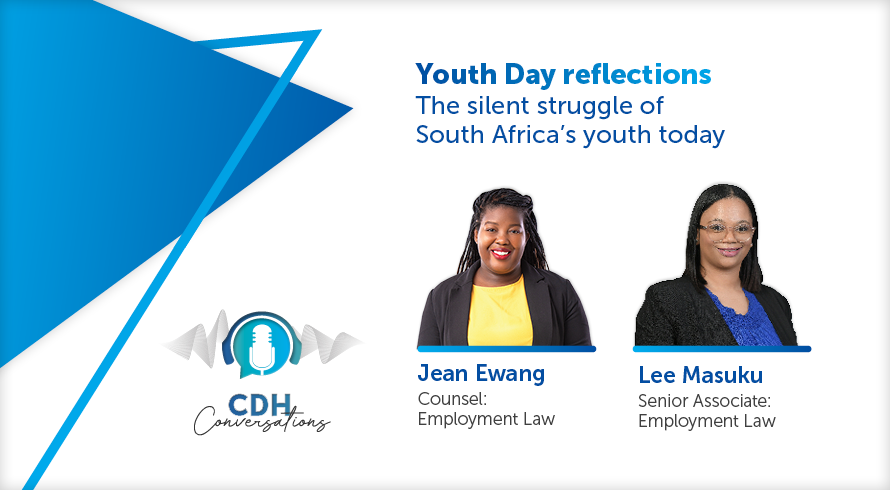Can companies trade recklessly during COVID-19?
Under section 22(1) of the Companies Act, a company is prohibited from carrying on its business recklessly, with gross negligence, with intent to defraud any person or for any fraudulent purpose. Section 22(2) of the Companies Act empowers CIPC to issue a notice to a company to show cause why the company should be permitted to continue carrying on its business, or to trade, as the case may be, if CIPC has reasonable grounds to believe that a company is:
- unable to pay its debts as they become due and payable in the normal course of business; or
- carrying on its business recklessly, with gross negligence, with intent to defraud any person or for any fraudulent purpose.
If the company fails, within 20 business days, to satisfy CIPC that it is not engaging in the aforementioned conduct, or that it is able to pay its debts as they become due and payable in the normal course of business, CIPC may issue a compliance notice to the company, requiring it to cease carrying on its business or trading.
Section 22(2) contemplates two distinct positions. In the first instance, a company is prohibited from trading under commercially insolvent circumstances (i.e. the company is unable to pay its debts as they become due and payable in the normal course of business). In the second instance, a company is prohibited from carrying on its business recklessly, with gross negligence, with intent to defraud any person or for any fraudulent purpose.
The Practice Note only considers the first instance by providing that “the Commission will not invoke its powers under section 22 of the Companies Act, in the case of a company which is temporarily insolvent and still carrying on business or trading.” Presumably, if a company is carrying on its business recklessly, with gross negligence, with intent to defraud any person or for any fraudulent purpose, or if the company’s temporary insolvency is caused by circumstances other than COVID-19, CIPC may continue to issue section 22 notices.
Whilst the Practice Note provides some relief to companies, it does not in itself suspend the operation of section 22 of the Companies Act, only CIPC’s response to companies trading under temporary insolvent circumstances caused by COVID-19. This leniency is arguably granted by CIPC to allow companies to trade out of its commercial insolvency. However, the general prohibition placed on companies by section 22(1) remains in force and companies must be vigilant not to open itself up to potential claims by third parties.
The Practice Note, for example, has no effect on section 218(2) of the Companies Act, which provides third parties with a right to pursue “any person” (including the company, its directors, officers, employees, etc.) who contravened any provision of the Companies Act that caused the third party to suffer damages as a result of that contravention.
In addition, it is unclear what the effect of the Practice Note is on directors’ personal liability under section 77(3)(b) of the Companies Act. Section 77(3)(b) of the Companies Act provides for a claim against the directors of a company “by or on behalf of the company for losses sustained by the company as a direct or indirect consequence of the director having acquiesced in the carrying on of the company’s business despite knowing that it was being conducted in a manner prohibited by section 22(1)”.
Whilst the above may be technically accurate, the Practice Note will be of no practical benefit if it cannot at least be utilised by the company or its directors to supplement or amplify a defence to an action brought under sections 77(3)(b) or 218(2), as read with section 22, of the Companies Act.
Having regard to the above, however, it is abundantly clear that companies are not permitted to trade recklessly during COVID-19 (or at all). The Practice Note only affords protection from the CIPC in those limited circumstances where companies are temporarily insolvent as a result of COVID-19 and continue carrying on business or trading.
If you would like to understand the potential risks facing your business as a result of COVID-19, please contact us. You can also stay up to date with our latest COVID-19 news here.
The information and material published on this website is provided for general purposes only and does not constitute legal advice. We make every effort to ensure that the content is updated regularly and to offer the most current and accurate information. Please consult one of our lawyers on any specific legal problem or matter. We accept no responsibility for any loss or damage, whether direct or consequential, which may arise from reliance on the information contained in these pages. Please refer to our full terms and conditions. Copyright © 2026 Cliffe Dekker Hofmeyr. All rights reserved. For permission to reproduce an article or publication, please contact us cliffedekkerhofmeyr@cdhlegal.com.
Subscribe
We support our clients’ strategic and operational needs by offering innovative, integrated and high quality thought leadership. To stay up to date on the latest legal developments that may potentially impact your business, subscribe to our alerts, seminar and webinar invitations.
Subscribe




